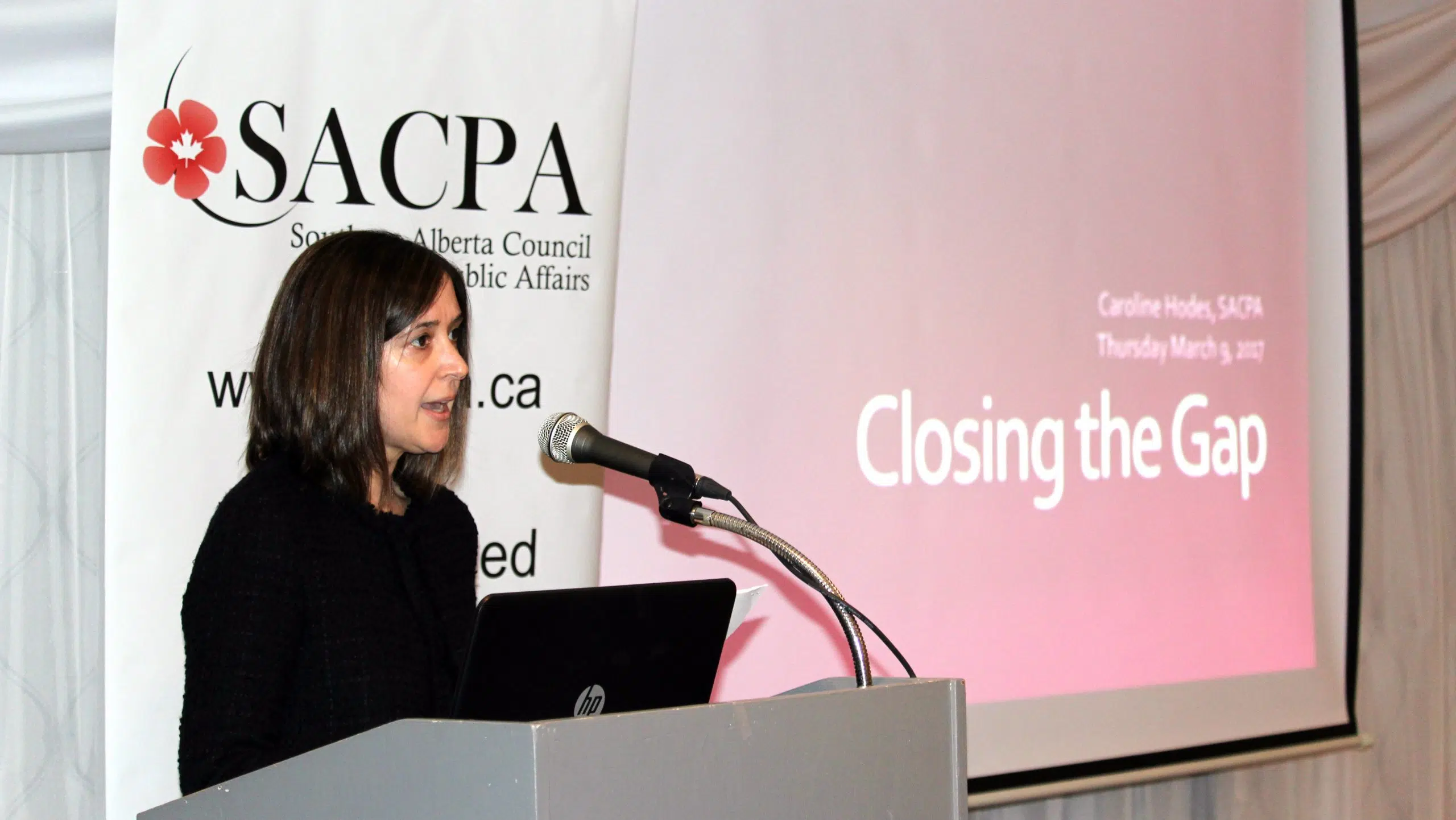
U of L professor discusses the progress of gender equality at SACPA
LETHBRIDGE – One day after the global recognition of International Women’s Day (Mar. 8), the question of how much progress has been made towards gender equality came up for discussion at SACPA (Southern Alberta Council on Public Affairs).
Dr. Caroline Hodes, a professor in the Department of Women and Gender Studies at the University of Lethbridge, spoke to Lethbridge News Now before delivering her presentation.
“I think that we’re seeing progress in terms of the research that’s being put out, so if you look at Statistics Canada, if you look at the Canadian Centre for Policy Alternatives, there’s a lot of data that’s out now,” she explained. “Now the issue is actually turning this data into meaningful social change for women.”
When asked if societal attitudes have adjusted enough for that change to fully happen, she acknowledged real optimism, saying more people are getting on-board, thanks in-part ironically to the election of Donald Trump as President of the United States. She said the women’s marches across the U.S. and around the world after his election, show significant growth and support for the cause.


